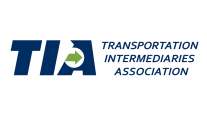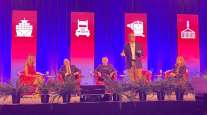Louisiana Transportation Chief Says Taxpayers Face 'Sticker Shock' on Road and Bridge Needs

Louisiana's transportation chief said Nov. 17 that taxpayers will experience "sticker shock" when they see how much money is needed to improve roads and bridges, possibly about $700 million per year.
Shawn Wilson, secretary for the state Department of Transportation and Development, also said raising the gasoline tax is sure to be part of any recommendations of Gov. John Bel Edwards' transportation task force, of which Wilson is co-chairman.
How much is unclear, but increases of 10 cents and 20 cents per gallon, which would raise $300 million and $600 million per year, respectively, have been mentioned.
"We are not going to be shy about making a case for what needs to be done in Louisiana," Wilson said. "You are going to get sticker shock because we have ignored the truth for too long."
Wilson made his comments to the annual meeting of the American Council of Engineering Companies/Louisiana.
He did so just ahead of a Dec. 1 meeting of the task force, where recommendations on how much and how to raise road and bridge dollars are expected.
The findings of the panel are due to Edwards by Jan. 1.
The state has a $13 billion backlog of transportation needs and a $16 billion list of "mega" projects, including a new bridge across the Mississippi River in Baton Rouge.
The governor is expected to make road and bridge funding a key topic of the 2017 legislative session, and any such push is sure to spark controversy.
Motorists pay 38.4 cents a gallon for gasoline, including 20 cents in state gasoline taxes.
That 20 cents includes 16 cents for rank-and-file projects and 4 cents to retire a debt from a 1989 statewide building plan called TIMED.
Wilson said after the meeting that a $700 million increase in road and bridge spending is one of four recommendations of the Statewide Transportation Plan.
Such an increase "gets most of what the governor has asked us to do," he said.
Aside from a boost in the gasoline tax, increases in registration fees, license plates and other areas could be options submitted to the governor.
Tolls and public/private partnerships are also in the mix, especially for costly work like a new bridge in Baton Rouge.
Wilson said he favors linking the gasoline tax to inflation or other barometers, which is called indexing.
Wilson said only four other states have gone longer than Louisiana without a boost in the gasoline tax — 27 years.
He also made clear that his job, which he began in January, is to find more dollars for roads and bridges. "Job one is to make a case for new revenue," Wilson said.
Any such push next year would be politically treacherous.
Recurring state budget problems mean the governor and state lawmakers will be grappling again with funding problems for health care, a state scholarship program for Louisiana residents, and other areas.
Any increase in the gasoline tax would require the approval of two-thirds of the House and Senate — 70 votes and 23 votes.
Some key lawmakers, including House Transportation Committee Chairman Kenny Havard, (R-St. Francisville), have questioned whether a major gasoline tax increase is feasible. Havard is a member of the task force.
Wilson said the governor made it clear that he wants honest funding recommendations.
"He said for us to get it right but understand there is a political process," Wilson added.




